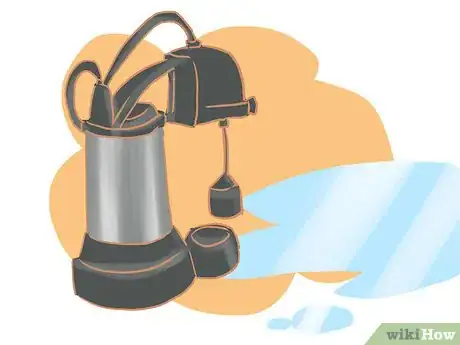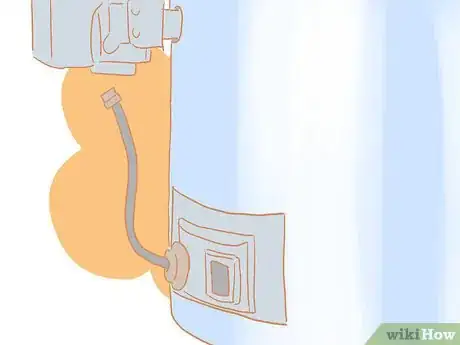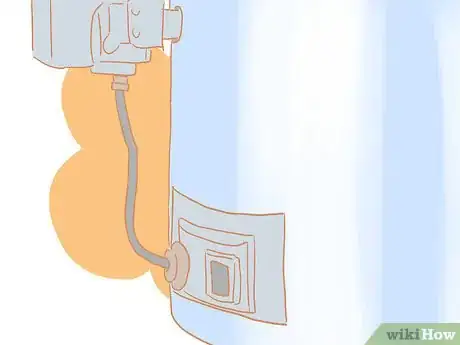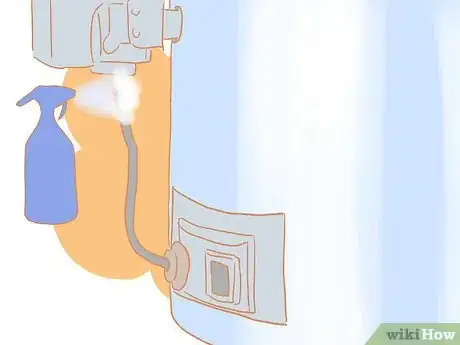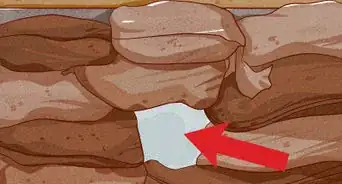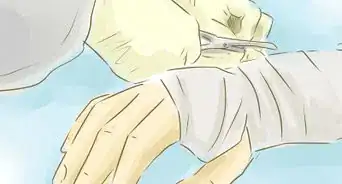X
wikiHow is a “wiki,” similar to Wikipedia, which means that many of our articles are co-written by multiple authors. To create this article, 12 people, some anonymous, worked to edit and improve it over time.
This article has been viewed 145,874 times.
Learn more...
Coming home to find your basement flooded with water is bad enough, but realizing that your water heater is also broken is even worse. But don't worry, this article will teach you how to fix a gas water heater after a flood.
Steps
-
1Obviously, after your power is restored, you need to get all water out of the basement. This is usually done with a submersible pump.[1]
-
2When inspecting the damage remember to turn all gas shut-offs to the off position. This will prevent a leak in the event a control valve is damaged by water.[2]Advertisement
-
3Gather tools. Every water heater is a bit different. you may be able to get by with a small adjustable wrench, channel locks, air compressor, blowgun, and rags.
-
4Disconnect gas supply line, pilot line, main burner line, and thermocouple from control. Thermocouples come in both right and left thread.[3] Be careful to turn yours in the right direction as excessive tightening can damage the control.
-
5Remove burner chamber cover bolts(if required). The burner assembly should now pull out of the chamber.
-
6Inspect the burner assembly for damage and corrosion. Replace the entire burner assembly if damaged. Otherwise, clean the burner assembly with rags and blow out all orifices with air hose.
-
7Clean the burner chamber thoroughly and ensure that vent screen is free of debris.
-
8Replace the burner assembly in the burner chamber ensuring that locating features are aligned and clips are replaced (if applicable). This hold the burner in the center of the chamber.
-
9Blow out all ports on the control unit until it is free of water.
-
10Reconnect the pilot line, burner line,and thermocouple. (Do Not over-tighten --- brass fittings strip easily)
-
11Reconnect gas supply line.
-
12Check for gas leaks. Turn gas supply on at valve and spray leak detector on all fittings. If you do not have leak detector use water and dish soap mixed at about 75% 25% respectively. Leaks will present by creating bubbles around fittings.[4]
-
13Fix any leaks found in step 12. Usually a good teflon tape sealant does the trick.
-
14Light the pilot according to manufacturer instructions. The gas water heater should be ready to go.
Advertisement
Community Q&A
-
QuestionWhat's wrong if the pilot light will light, but when I turn on the heater it goes out?
 Community AnswerMost likely it is due to a bad thermocouple, you'll need to replace it. It is a very cheap part to replace.
Community AnswerMost likely it is due to a bad thermocouple, you'll need to replace it. It is a very cheap part to replace. -
QuestionCan I use paper to start a water heater with an igniter, and bypass using the igniter?
 Community AnswerNo. The system is designed to not work at all if any component fails a checksum.
Community AnswerNo. The system is designed to not work at all if any component fails a checksum. -
QuestionHow do I clean the gas valve on a hot water heater?
 Community AnswerReplace it. It's not a serviceable part, and should never be tampered with.
Community AnswerReplace it. It's not a serviceable part, and should never be tampered with.
Advertisement
Warnings
- Never service a gas appliance with gas line connected. Always disconnect gas lines before servicing. Clear the work area of any possible ignition sources.⧼thumbs_response⧽
Advertisement
References
- ↑ https://www.popularmechanics.com/home/interior-projects/how-to/a6414/fix-a-flooded-basement/
- ↑ https://inspectapedia.com/heat/Flood-Damaged-Water-Heater-Repair.php
- ↑ https://inspectapedia.com/heat/Flood-Damaged-Water-Heater-Repair.php
- ↑ https://www.dummies.com/home-garden/home-improvement/kitchen-bath-remodeling/how-to-check-for-gas-line-leaks/
About This Article
Advertisement
